饞Gluttony in Chinese Culture
By Jiangxiang Laofan
饞Gluttony in Chinese Culture
By Jiangxiang Laofan

The Chinese character chán“饞” expresses the idea of gluttony, and the food radical (“饣”) on the left hand side is a complement of the two dots on the lower right hand side, which depict dripping saliva. In the Wu dialect, “饞” (gluttony) and the character láo “癆” (ill) are often put together to express a negative attitude toward those with an excessive appetite for food and drink.
Bitterly pointed satire of gluttons can be found in the ancient Chinese jestbooks. A joke “Gluttonous Woman Seeing Snow” in Xiaoshi Daoren (小石道人)’s Xitanlu (《嘻談錄》, A Collection of Jokes) vividly portrays a woman with a never-ending ravenous hunger and her foodrelated anecdotes. On one blustery, snowy day, the woman’s husband asks her to see how thick the snow is, she proceeds to describe it as using various food metaphors. (“The snow is thick as creamery filling.” “Tis a thick griddlecake.” “Round and heaping like a scrumptious baked roll!”) And when her husband gets angry at her prattling, threatening to beat her with tongs, she cries, “Fie, I told thee of tasty treats! Thou canst beat me not about the hands and face with thy doughnut of iron, my mouth shall be a-swollen like a luscious loaf of sweetbread!”
The sequel of this book (Xitanxulu,《嘻談續(xù)錄》, A Collection of Jokes: The Sequel) tells a story of a gluttonous drunkard who“is tipsy all day long” and “cannot be without the bottle for a moment.” When his friends urge him to give up drinking, to which he replies,“Forsooth, glad would I be to quit I reckon, but I have to stay with the wine a spell. Alack, I so yearn for a reunion with my son that I could but quench my sorrows with a good bit of the libations. But I promise ye, my good friends, upon my dear lad‘s return, I shall swear off drinking anon.”
“Swear that thou shalt never again be a-quaffing on the sack. Give up the drink and all its sin and vice!”command the others.
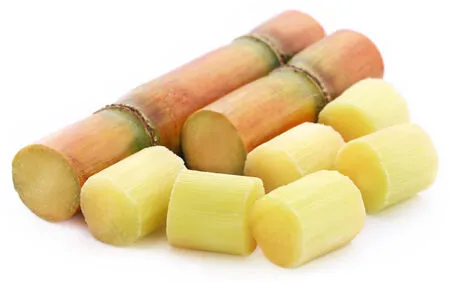
● Sugercane
The drunk then gives his honorable vow as follows, “By my troth, I shall never drink again after my son’s return—lest I be crushed by a wine jar. I had as lief be choked by a wine vessel as imbibe of the spirits. My skin had as lief be soaked in a pond of wine as I be beguiled by the devil’s water. Let me drown in a sea of wine! May punishments fall upon my head; may Heaven chaineth my soul and body forever beneath a myriad of winesprings.”
“Prithee,” his friends ask, “whither hath thy son gone?”
“To the tavern,” replies the drunk,“to buy wine for me.”
In one of his comic strips, Hua Junwu, one of China’s most renowned cartoonists, depicts a chain smoker striving to quit smoking. The decisive man throws his tobacco pipe out of the window. However, at the next moment he rushes downstairs—just in time to catch the pipe and put it back into his mouth.
While the artists mercilessly deride the gluttons, another kind of 饞may deserve our sympathy. It’s the longing of the poor for the necessities of life. Liang Shiqiu, a renowned Chinese essayist, explains the difference between “饞” and its English counterpart. In the beginning of an essay named “饞” in his collection Yashexiaopin (《雅舍小品》, Essays Written in a Fine Lodge), Liang writes, “no appropriate word can be found in English to translate ‘饞.’”
Referring in particular to the craving for food or drink, 饞 can also mean a greed in the general sense. “Perhaps we Chinese people just love eating more.”Liang writes, “The traditional form of饞 is ‘饞,’which consists of the left part of ‘food’(食) and the right part of ‘a cunning rabbit’ (毚). Rabbits run to their food; so do people. It’s like the folk saying, ‘running till two legs break, just for one mouth’s sake.’ A true gourmand would never be lazy in the search for gourmet delicacies.”
The character of 饞 is widely used in brands and names in the Chinese food industry. In Guangzhou there is“Chanxiangsi (饞香思) Barbecue.”In Chongqing there is a brand of spiced duck named “Chanweiya (饞味鴨)” as well as “Chanzuiya (饞嘴鴨).” (They are two different monikers for the same brand, as they relatively correspond to the local accents in the different areas.) Likewise, the Tujia people who live in Hunan province are proud of their special snack called “饞嘴餅(Chanzuibing)” which is praised as a“Chinese-style pizza.”
Sometimes, as the proverb goes,“Your eyes are always bigger than your stomach.” An anonymous poet penned the following a doggerel:
Spring has sprung, and from the pot the slippery shrimps spring
Toasting and tasting the tasty tripe’s texture, we begin our new spring’s fl ing.
Simmering a steaming pot, a veritable vat of delectable delicacies: Stewing prawns, beef, spinach, bean curd, tripe, and mushroom,
a beautiful feast for our bellies.
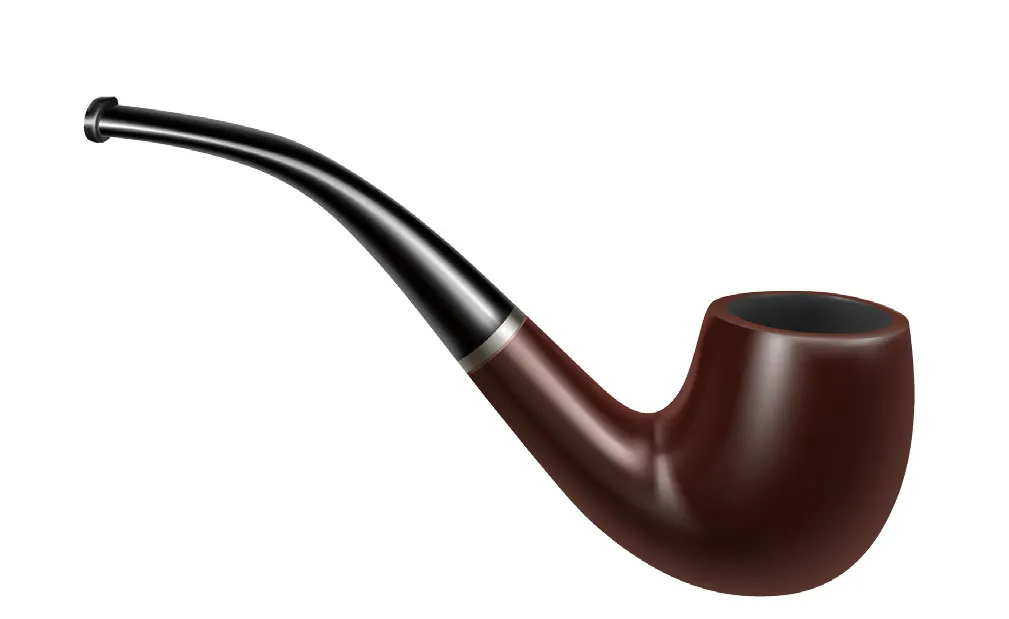
● Tobacco pipe
Delicious dipping sauces the pot is a diner’s delight, thus I wash it down with a sip.
At nightfall the restaurants put out the last call, yet happy hour we do not skip,
The time has come to retire for the evening’s dream,
But fi rst a midnight snack of some pastries and cream.
Chinese people often regard a robust appetite as a sign of good health; and gluttony may even accompany an artistic life-style. The notable late writer Wang Zengqi once compiled a collection entitled Zhiweiji (《知味集》, A Collection of Flavors). The essays in the collection were all written by renowned writers, and all about delicious foods. According to Wang, both the essayist Zhang Dai (1597-1679) and the literary critic Yuan Mei (1716-1797) are “top gluttons.”
A netizen argues, “The love of eating brings knowledge as well as an artistic spiritual realm in which we pursue the best things of life. So stop calling me a ‘glutton.’ Call me ‘the master foodie.’” I suppose he does make sense. And as I recall, Shen Hongfei, the general counsel of A Bite of China, a very popular documentary of Chinese cuisine, also calls himself“the Grand Master of the 饞 School.”After all, gluttony饞, or the ravenous love of food, is no longer regarded as a sin in the modern world.
(From Comedy World, January 2017. Translation: Wang Xiaoke)
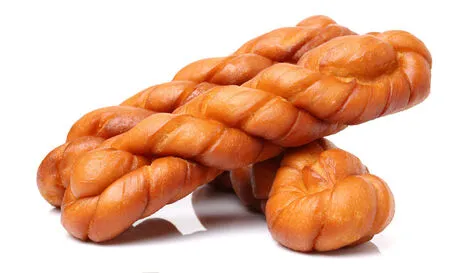
● Fried dough twists
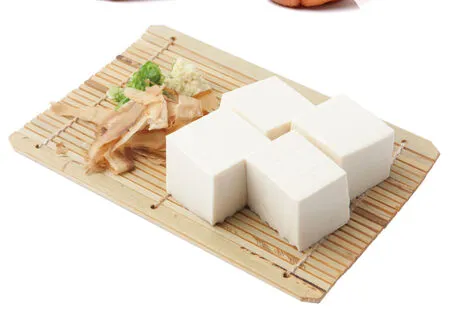
● Tofu
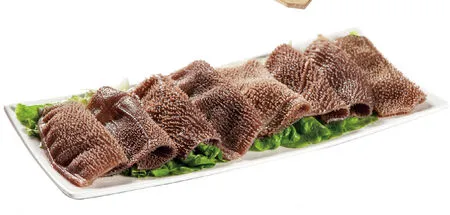
● Beef tripes

